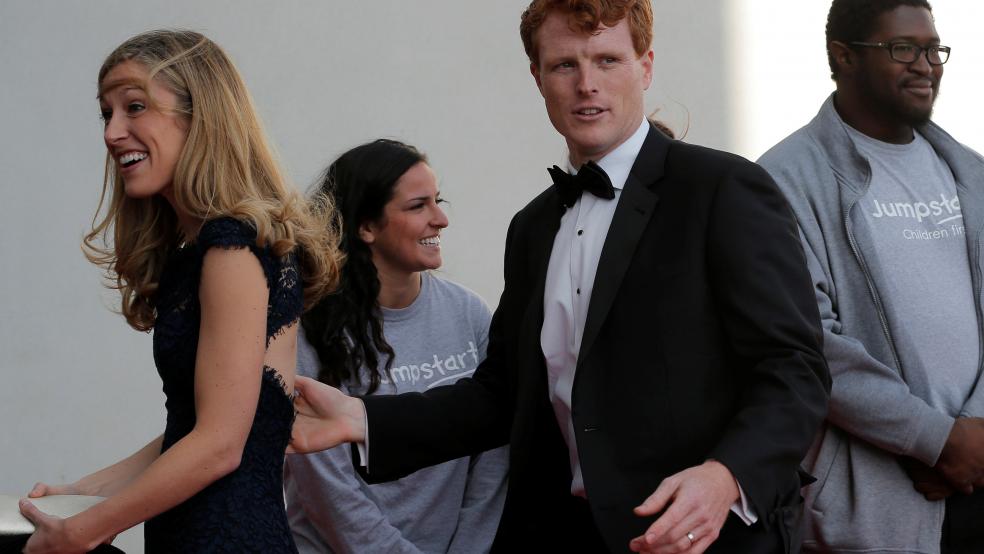President Obama dropped the ball in Ferguson-- not by interjecting himself into the scene during the riots, but by ignoring the plight of struggling communities like Ferguson across the U.S. that teeter on the edge of poverty. Rather than pursuing policies that might have given African-Americans hope that they might finally progress, along with the rest of the country, Obama has pursued a progressive agenda aimed at building his political fortunes and his legacy. Ferguson, where unemployment more than doubled over the past decade to more than 13 percent, needs jobs.
The African-American community has conspicuously lagged the rest of the country in terms of income and achievement. On the 50-year anniversary of Martin Luther King’s “I have a Dream” speech last year, a lengthy analysis in The Washington Post indicated that by most economic measures, including average incomes, wealth, and poverty rates, blacks have made little progress compared to whites over the past half-century. At the same time, the marriage gap has widened. Some 52 percent of black children now live in single-parent homes, compared to 20 percent of white children.
Related: Obama on Ferguson—U.S. Has More to Do on Race Relations
There have been few gains under President Obama. Black unemployment has historically averaged twice that of whites -- well above what would be considered normal for a recession. Nothing has changed. White unemployment was 4.8 percent last month; black unemployment was 10.9 percent. For teens, the comparison is worse; the portion of whites between 16 and 19 out of work is 16.3 percent, compared to 32.6 percent of black youths.
Why are we surprised? The president’s immigration program, the push for a higher minimum wage, the enactment of environmental regulations that will raise energy costs, protection of our broken education system--all these measures have what Attorney General Eric Holder describes as “disparate impact” on blacks. No wonder they didn’t respond to President Obama’s aggressive encouragement to vote in the midterm elections.
No one expected miracles from our first African-American president, but the black community might have hoped that some building blocks for future progress would be put in place. The country’s high school graduation rate, for instance, has jumped 80 percent for the first time, but only 68 percent of black youths gain a high school diploma, compared to 85 percent for whites.
Instead of demanding that black families see their kids through high school, and that educators make it happen, we have been busily disarming the methods by which school administrators enforce good behavior and attendance. Why? Because, according to Holder’s Justice Department, “racial discrimination in school discipline is a real problem.”
Related: Public Schools -- The Crushing Racism of Low Expectations
African-American columnist Jason Riley argues in his book, Please Stop Helping Us, “The problem is primarily cultural — self-destructive behaviors and attitudes all too common among the black underclass. The problem is black criminal behavior, which is one manifestation of a black pathology that ultimately stems from the breakdown of the black family.
Whether you agree with Riley’s assessment or not, it is clear that the African-American community has not kept pace with most other segments of U.S. society. Black leaders are partly to blame, as they encourage the resentment and sense of victimhood that waylays many young African-Americans. Instead of empowering the black community in any enduring way, like pushing for better schools, they preach that the system is profoundly rigged.
Today they accuse law enforcement officials of unjustly targeting blacks. Authorities are disbanding police tactics like the “stop and frisk” program in New York City, charging they are discriminatory. Laws – about infractions like marijuana possession -- are being softened to cut down on the number of African-Americans in jail.
Will dumbing down law enforcement reduce crime? Doubtful. More likely, it will endanger minority neighborhoods, where most of our crime takes place. As Riley has written, blacks account for about 13 percent of the population, but between 1976 and 2005, they accounted for over half of all murders. Riley points out that black involvement in most other crimes, including “robbery, aggravated assault and property crimes, is still typically two to three times their representation in the population.”
Related: Poverty Moves Into the Burbs
Black leaders have not helped modulate the uproar in Ferguson. Al Sharpton has vowed the “fight is not over,” and is openly distrustful of the local prosecutor. Attorney General Eric Holder has asserted that the Justice Department “will continue to work with law enforcement, civil rights, faith and community leaders across the country to … improve fairness in the criminal justice system overall.” The implication: the justice system in our country is inherently unfair. Even President Obama, instead of strongly condemning the violence, suggested that it was the result of historical discrimination; by implication, it was understandable that people would loot and burn stores and wreck police vehicles.
Unhappily, President Obama’s agenda will only make matters worse. For instance, the Congressional Budget Office predicts raising the minimum wage to $10.10 could cost half a million low-wage, low skill jobs – the kind of hospitality and service jobs disproportionately held by blacks and other minorities.
Further, most of the potential benefits of the wage hike would not accrue to low-income or black Americans, since so many minimum wage workers are students, or stay-at-home moms who don’t want to work full time. The CBO report concludes, “Just 19 percent of the $31 billion would accrue to families with earnings below the poverty threshold, whereas 29 percent would accrue to families earning more than three times the poverty threshold.”
President Obama is chasing a legacy; how disappointing that it will not include any real progress for African-Americans. That is bad news, as we see, for the whole country.
Top Reads from The Fiscal Times:
- There Are Now 69,560 Americans Worth $30M or More
- Nearly Half of Us Are Dangling on the Edge of Financial Ruin
- Unemployment at 5.8%? Here’s the Number That Really Matters






